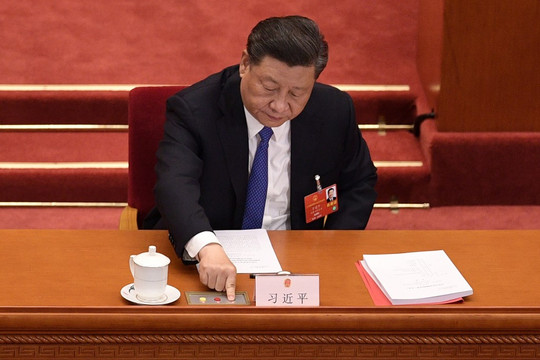Just over a month after Chinese lawmakers first proposed imposing an anti-sedition law on Hong Kong, China has pushed through its divisive national security law, in a process that had reportedly been fast-tracked. The law passed unanimously by the National People’s Congress criminalises “separatism, subversion of state power, terrorism and interference”, a repressive law enacted in response to the ongoing pro-democracy protests in Hong Kong that have escalated since mid-2019.
The law also gives judicial priority to Beijing by ensuring that the interpretation and application of the legislation is dictated by the state. Although the official legislation has not been released, it has been confirmed that the language used in the statute is vague and very similar to the restrictive laws currently in place in mainland China. Beijing will also set up a national security office in Hong Kong, effectively acting as a physical blockade to the territory’s autonomy.
The national security law was introduced by decree under Annex III of the Basic Law, overriding British legislation and allowing Beijing to push the law through without any consultation with Hong Kong. It is not insignificant that this legislation has been pushed through on the eve of the 23 rd anniversary of the handover.
Journalists and media organizations have feared its enactment, believing that it will seriously affect press freedom and impinge on the safety of journalists and publishers. The law will have wide- reaching implications for all journalists based out of Hong Kong, acting as a censor for any reports that contradict the message of Chinese authorities. Any critique of Chinese authorities could be labelled as sedition and punished harshly.
Many fear the law will mark the end of the civil liberties that Hong Kong citizens have enjoyed for decades. Over recent years press freedom violations in Hong Kong have increased as Beijing uses its influence to clamp down on media freedom.
IFJ said: “This new law will give China the power and the scope to severely limit the freedoms of Hong Kong citizens. IFJ strongly condemns the way this law has been pushed through. The lack of detail and transparency in this process is greatly concerning. It is critical that China respects Hong Kong’s unique place in the world for its economic strength and as a centre of democratic principles and press freedoms in Asia.”

